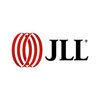PODCAST: Why real estate is confused about sustainability
Measures to limit real estate’s environmental impact are gathering pace, but some managers are struggling to keep up
Despite the number of large companies making climate commitments reaching critical mass, and governments legislating to cut emissions, the real estate sector is still confused about sustainability targets and how to achieve them, says Anthony Clark, senior director, tenant representation, JLL.
There is a fundamental lack of understanding as to basic concepts and principles,
says Clark, speaking on the Perspectives podcast. A lot of people don’t understand the difference between carbon neutral and net zero carbon.
Becoming carbon neutral is about measuring your emissions and then finding ways to offset them. But net zero means truly reducing carbon emissions. It’s about changing your business behaviours and practices, reducing your emissions across the entirety of the value chain and only using offsets as an absolute last resort,
Clark says.
Hurdles to implementation
Businesses are still coming to terms with the impact on their carbon footprint of staff working remotely and may not fully realise the extent to which workers at home are still contributing to their overall emissions.
A business in the post-pandemic world might think that if they skinny their footprint down to 8,000 square metres from 10,000 they're making a net savings. But while they're allowing people to work from home, their emissions are very quickly adding up,
Clark says.
Measuring carbon emissions and input is a consistent challenge for the real estate industry. Shared, accurate data between landlord and tenant is the key to net zero solutions, but currently lacking.
Another challenge is the perceived cost of carbon solutions, including technology. However, running a simple audit as a first step can be revealing, says Connor McCauley, head of sustainability, Australia and New Zealand, JLL.
While energy prices and waste collection costs have gone up, the cost of an audit hasn't. It’s a small investment that helps you see where savings can be made,"
McCauley says speaking on the recent podcast.
Not carrying out an audit can be costly, McCauley adds, citing waste contractors that are still emptying commercial bins based on contracts drawn up pre-pandemic when offices were busier.
People are working from home and there hasn’t been as much waste, yet the same number of bins are still being collected and businesses are paying the same price - sometimes for an empty bin.
About JLL
For over 200 years, JLL (NYSE: JLL), a leading global commercial real estate and investment management company, has helped clients buy, build, occupy, manage and invest in a variety of commercial, industrial, hotel, residential and retail properties. A Fortune 500® company with annual revenue of $20.8 billion and operations in over 80 countries around the world, our more than 111,000 employees bring the power of a global platform combined with local expertise. Driven by our purpose to shape the future of real estate for a better world, we help our clients, people and communities SEE A BRIGHTER WAYSM. JLL is the brand name, and a registered trademark, of Jones Lang LaSalle Incorporated. For further information, visit jll.com.
